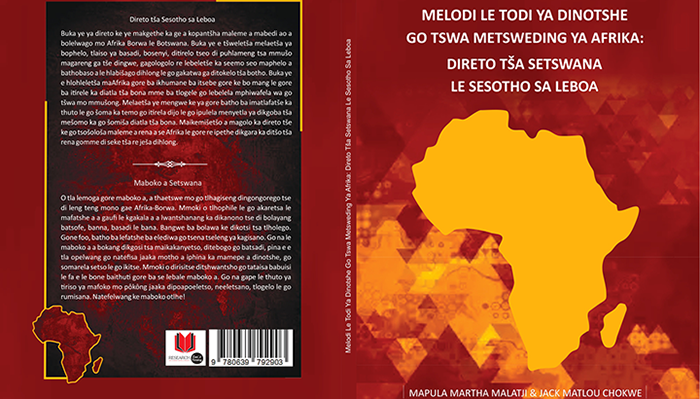College of Education
School ecosystems demand a new type of leadership

Prof Shuti Steph Khumalo
In his inaugural lecture, titled Socially Just Leadership: A Strategic Approach in Navigating Disrupted Schooling Ecosystems, held on 30 July 2025, Prof Shuti Steph Khumalo built on his extensive scholarship and reflected on the global schooling challenges brought about by unprecedented disruptions such as natural disasters, geopolitical instability, policy changes and resource shortages.
Kumalo is attached to the Department of Educational Leadership and Management in the College of Education.
In his lecture, he argued that school leadership must be dynamic, agile, digitally adept and grounded in social justice principles. The lecture further aimed to ignite a critical dialogue among school leadership researchers about preparing future-ready leaders in education.
In carefully using the concept "cocktail leadership mix" as a metaphor, Khumalo argued that the evolving dynamics of global education ecosystems demand a new kind of adaptive, resilient and transformative leadership. He further asserted that we are living in what scholars describe as a world marked by volatility, uncertainty, complexity and ambiguity (VUCA).
In articulating what constitutes a strategic mix of the cocktail (used in his lecture as a metaphor), Khumalo identified four school leadership approaches: social justice leadership, digi-tech leadership, strategic agile leadership, and leadership for sustainability. He argued that these constitute a strategic mix of the leadership cocktail.
He said that while social justice, digi-tech and agile leadership provide the essential tools to respond to disruption, sustainable leadership further anchors these approaches in long-term viability. It ensures that schools continue delivering quality education equitably. It fosters resilient, ethical and culturally sensitive organisations. It promotes collaboration, trust and shared responsibility across all stakeholders.
Khumalo argued that his leadership cocktail framework is grounded in key social justice theories, which are particularly relevant in the face of today’s educational disruptions. These include the following:
- John Rawls’s theory of justice as fairness, which emphasises equitable access to resources and opportunities for the least advantaged, as well as fairness in policy design and implementation.
- Nancy Fraser’s three-dimensional theory of justice recognition, representation and redistribution, which advocates for inclusive participation, cultural respect and the fair distribution of resources.
- Miranda Fricker’s epistemic injustice, which stresses the importance of enabling marginalised voices to participate meaningfully in knowledge creation and educational discourse.
Khumalo concluded his lecture by stating that, together, these leadership styles form a comprehensive, dynamic cocktail that enables schools to navigate VUCA environments and achieve sustainable educational success. He further stressed that social justice leadership constitutes this cocktail's ethical and philosophical backbone. Grounded in Rawls’s "justice as fairness", Fraser’s "redistribution and recognition" and Fricker’s "epistemic justice", this approach ensures that no one is left behind in policy, participation or opportunity.
Khumalo is currently editing a book titled Cocktail School Leadership Mix: Strategic Approach to Crisis and Change, published by CSMFL. He is also developing several academic papers based on his lecture and has submitted a commentary to a Taylor and Francis journal for peer review.
Looking ahead, he intends to recruit graduate students to further explore his niche research areas. His other envisioned legacy includes establishing a short leadership programme (SLP) in this area of his scholarship, and organising workshops and webinars to disseminate innovative developments in school leadership aligned with the themes of his lecture.
* By Freddy Abilio Mlambo, Communication and Marketing Specialist, College of Education
Publish date: 2025/08/20

 Unisa co-hosts G20 community outreach in the Eastern Cape
Unisa co-hosts G20 community outreach in the Eastern Cape
 Unisans gain membership of prestigious science academies
Unisans gain membership of prestigious science academies
 Advocating for disability transformation through servant leadership
Advocating for disability transformation through servant leadership
 Unisa Press continues to illuminate the publishing space
Unisa Press continues to illuminate the publishing space